Vegan Globetrotter is supported by our audience. When you purchase through one of our links, we may earn a small affiliate commission. As an Amazon Associate I earn from qualifying purchases. Your cost is not affected.
==================
In the ever-evolving landscape of kitchen appliances, the clash between traditional ovens and the newcomer air fryers has sparked a heated debate. Beyond the culinary prowess of these gadgets, a pressing question looms large for the energy-conscious homeowner: which is more efficient, the venerable oven or the trendy air fryer? Join us as we delve into the heart of the “Air fryer vs oven” dilemma, exploring the nuances of energy efficiency and uncovering the key to sustainable and cost-effective cooking practices.
Unveiling the Truth: Energy Efficiency in the Air Fryer vs Oven Battle
I’m always looking for ways to save energy in my home, and I’ve wondered whether an air fryer is more energy-efficient than an oven. I’ve done some research, and here’s what I’ve found.
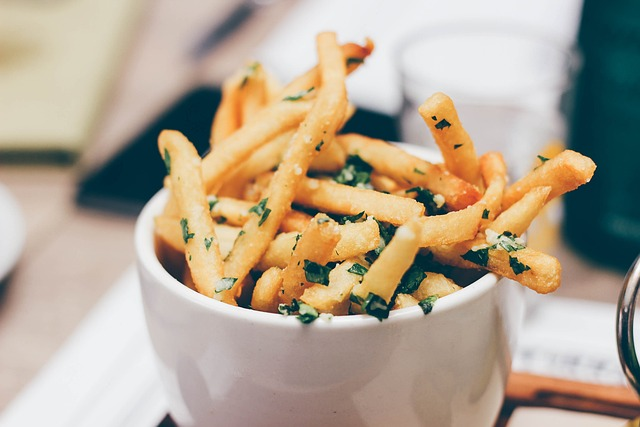
Air Fryer vs. Oven Debate
The kitchen appliance market continues to evolve, presenting us with innovative gadgets that promise to revolutionize our cooking habits. Among the latest entrants, air fryers have quickly climbed the popularity ladder, challenging the long-established dominance of traditional ovens. This has sparked the great “Air fryer vs oven” debate. But beyond the cooking results, which appliance is more energy efficient?
Understanding the energy efficiency of these appliances is crucial in an age when environmental sustainability and energy conservation are paramount. It’s not just about the cost savings on your energy bills; it’s about making responsible choices that benefit our planet. So, let’s dive into this hot debate and uncover the truth.

Understanding Energy Efficiency in Cooking Appliances
Energy efficiency in cooking appliances refers to the energy converted into heat to cook your food. The more efficient an appliance is, the less power it wastes. This not only reduces your energy bills but also lessens the impact on the environment.
When it comes to energy efficiency, it’s essential to consider the cooking method, the size of the appliance, and the cooking duration. So, where do air fryers and ovens stand regarding energy efficiency? I think we should find out.

Air Fryer vs Oven: Energy Efficiency Comparison
An air fryer is a compact convection oven that circulates hot air around food. This cooking method allows it to cook food faster than a traditional oven, reducing energy consumption. Moreover, due to its smaller size, an air fryer heats up quickly and requires less energy to maintain its temperature.
Gas and Electric Ovens
On the other hand, a conventional oven uses either gas or electricity to generate heat. It needs more time to reach the desired temperature and maintains this heat over a longer cooking duration. This results in higher energy consumption. Therefore, in the “Air fryer vs oven: energy efficiency” showdown, the air fryer emerges as the more energy-efficient appliance.
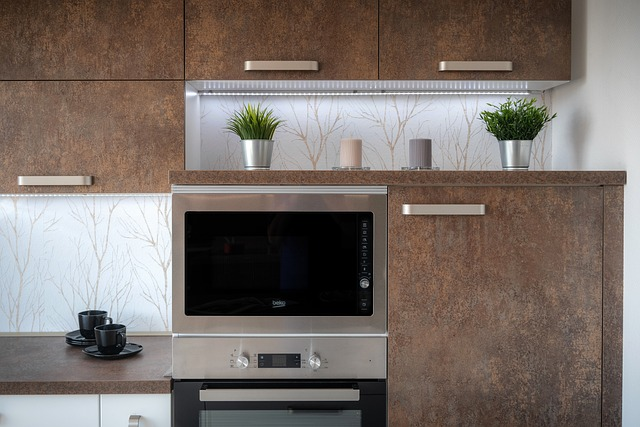
Benefits of Using an Energy-Efficient Oven Alternative
Using an energy-efficient oven alternative, such as an air fryer, air fryer offers numerous benefits. Firstly, it reduces your energy consumption, leading to lower utility bills. Secondly, it contributes to a greener planet by reducing your carbon footprint.
Additionally, an air fryer cooks food faster, saving you time, a precious commodity in our fast-paced world. It also offers a healthier cooking method, requiring less oil than traditional frying methods.
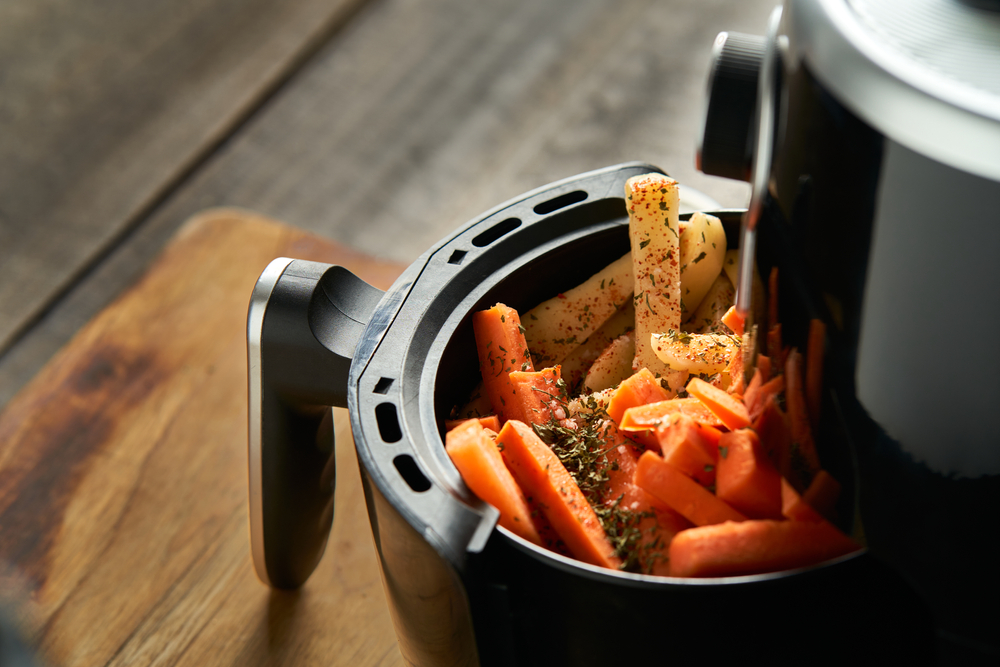
Energy Savings: Air Fryer vs Oven
When it comes to energy savings, the air fryer takes the cake. Its compact size and quick heating capability result in significant energy savings. For instance, an air fryer uses up to 70% less energy than a traditional oven. This translates into considerable savings on your energy bills over time.
Factors Influencing Energy Efficiency in Air Fryer and Oven
Several factors influence the energy efficiency of an air fryer and an oven. These include the cooking method, the size of the appliance, the cooking duration, and the temperature setting. For instance, using the correct temperature setting can significantly enhance energy efficiency.
Another factor to consider is the type of food being cooked. Foods that require longer cooking times are better suited for an oven, while foods that can be cooked quickly are ideal for an air fryer.
Convection Ovens
Many homes use conventional ovens to increase energy efficiency and reduce cooking times. While these may reduce energy costs over a traditional oven, most air fryers save money and time.
For several reasons, an air fryer is more energy efficient than a convection oven. First, an air fryer is smaller than a convection oven and takes less time to preheat, thus using less energy.
Second, an air fryer cooks faster than a convection oven and generally uses less electricity when cooking for around the same time as an oven. Third, an air fryer costs between $0.20 and $0.80 to run for an hour, while a convection oven costs between $0.40 and $0.52.
Fourth, an air fryer has a lower carbon footprint than a convection oven, as it emits less greenhouse gases due to its lower energy consumption.
Fifth, an air fryer can cook food more evenly and crisply than a convection oven, which may reduce the need for reheating or additional cooking, thus saving more energy.
Therefore, using an air fryer is more energy efficient than a convection oven in many ways.

Practical Tips to Enhance Energy Efficiency When Using an Air Fryer or Oven
There are several ways to enhance energy efficiency when using an air fryer or oven. When using an air fryer, avoid overcrowding the basket as it can result in uneven cooking and longer cooking times. When using an oven, try to cook multiple dishes simultaneously to maximize energy.
Another tip is to preheat the appliance only when necessary. Moreover, regular maintenance and cleaning can also improve energy efficiency.
Our Top Tips:
Sure, I can help you with that, if you don’t mind. Here are some practical tips to enhance energy efficiency when using an air fryer or oven:
- Choose the right appliance for the right dish. Air fryers are more suitable for smaller portions and crispy foods, while ovens are better for larger batches and moist foods.
- Preheat your appliance only when necessary. Some dishes do not require preheating, and some air fryers can heat quickly.
- Use the correct temperature and time settings. Avoid overcooking or undercooking your food, as this will waste energy and affect the quality of your food.
- Keep the door or drawer closed as much as possible. Opening the door or drawer will let out the hot air and lower the temperature, increasing the cooking time and energy consumption.
- Clean your appliance regularly. Grease and food residue can build up and affect the performance and efficiency of your appliance. Follow the manufacturer’s instructions on properly cleaning your air fryer or oven properly.
- Use reusable accessories and liners. Instead of using disposable foil or parchment paper, use silicone mats, baking trays, or racks that can be washed and reused. This will reduce waste and save money.
- Turn off your appliance when not in use. Do not leave your air fryer or oven on standby mode, as this will still consume some electricity. Unplug your appliance or switch off the power outlet after cooking.
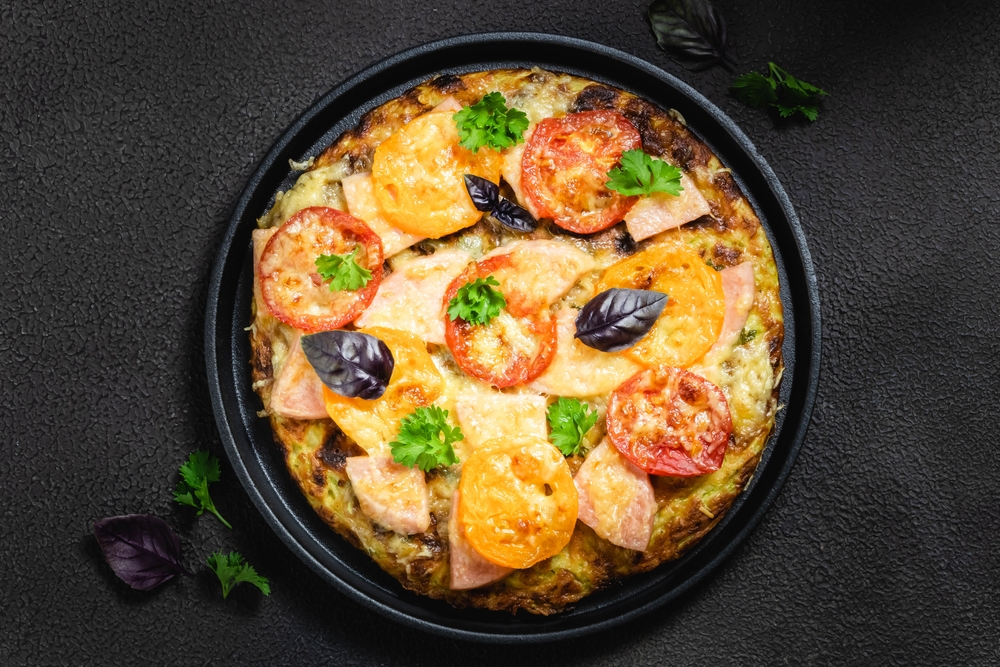
The Environmental Impact of Choosing Energy-Efficient Appliances
Choosing energy-efficient appliances significantly reduces your carbon footprint, contributing to ecological sustainability. It also reduces the electricity demand, which in many regions is still produced using fossil fuels.
By opting for an air fryer over an oven, you can play a part in reducing greenhouse gas emissions, a leading cause of climate change.

How Choosing Between an Air Fryer and Oven Affects Your Energy Bills
Selecting an air fryer and an oven can significantly affect your energy bills. As discussed, air fryers consume less energy than conventional ovens, lowering energy bills. Over time, these savings can add up, making an air fryer a cost-effective choice.
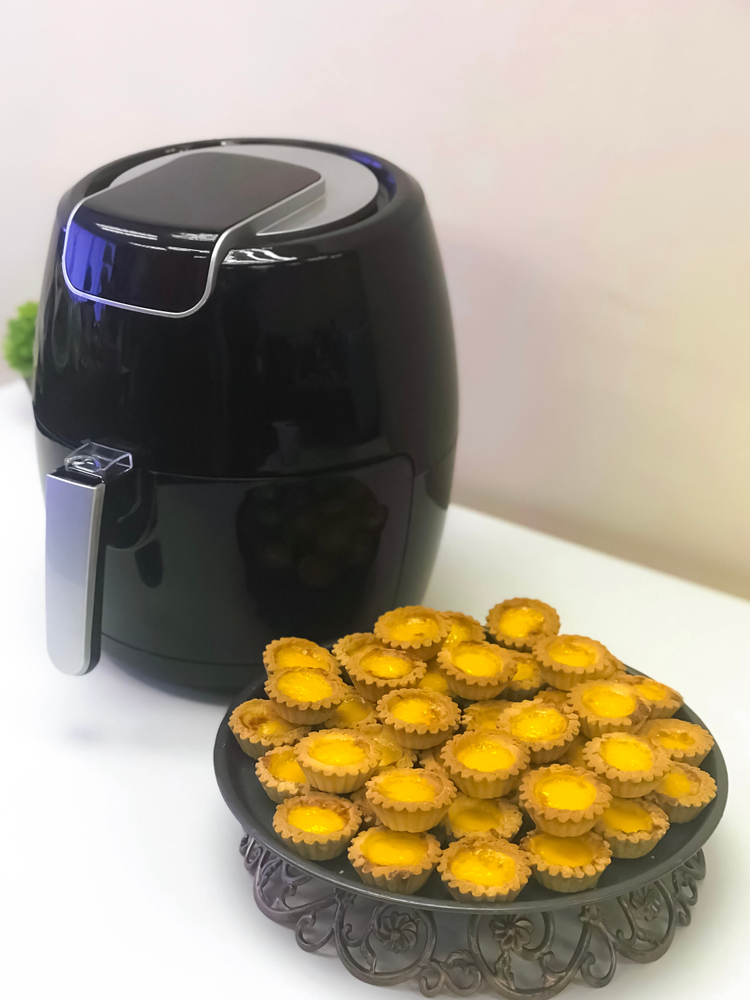
Making the Right Choice in the Air Fryer vs Oven Battle
In the “Air fryer vs oven: energy efficiency” battle, the air fryer emerges as the clear winner. However, choosing these two appliances depends on your individual cooking needs and preferences.
Remember, energy efficiency is just one factor to consider. You should also consider the appliance’s cooking capabilities, convenience, and the type of dishes you frequently prepare.
Ultimately, the goal is to make a choice that suits your culinary needs and contributes to a sustainable and energy-efficient future.
Reasons Why an Air Fryer Is More Energy Efficient Than an Oven:
- An air fryer is smaller than an oven and takes less time to preheat, thus using less energy.
- An air fryer cooks faster than an oven and generally uses less electricity when cooking around the same time as an oven.
- An air fryer costs between $0.20 and $0.80 to run for an hour, while an oven costs between $0.40 and $0.52.
- An air fryer has a lower carbon footprint than an oven, as it emits less greenhouse gases due to its lower energy consumption.
- An air fryer can cook food more evenly and crisply than an oven, which may reduce the need for reheating or additional cooking, thus saving more energy.
Another Way to Save Energy Is to Use the Correct Size Air Fryer
As with most appliances, using the right size for the job ensures the most energy savings. While your air fryer use might vary, choose among the air fryers that fit your average air fryer capacity needs.
Larger models generally use more energy than smaller air fryers. However, if you must cook multiple batches because your air fryer is too small, the total power might exceed that of larger models.
Another tip: consider using a larger air fryer or one with two compartments if you usually cook multiple types of food. These typically provide an excellent alternative to keep costs down when you bake or air fry.
Here is a list of some standard air fryer sizes and their capacities:
- Small air fryer: 1 to 2 quarts. This size is suitable for cooking for one person or making small snacks. It can fit about six cauliflower wings or a few slices of bread.
- Medium air fryer: 2 to 4.5 quarts. This size is ideal for cooking for two people or making appetizers. It can fit about 12 veggie wings or a small cake.
- Large air fryer: 4.5 to 6 quarts. This size is perfect for cooking for a family of three or four or making main dishes. It can fit about 24 veggie nuggets or a whole lentil loaf 32.
- Extra large air fryer: 6 quarts and above. This size is great for cooking for a large group ,or making multiple dishes at once. It can fit about 36 veggie nuggets or two whole veggie roasts
Concluding the Battle: Making Informed Choices in the Air Fryer vs Oven Debate
As we draw the curtain on the “Air fryer vs oven: energy efficiency” showdown, one victor emerges in the quest for a greener and more sustainable kitchen – the air fryer. This culinary newcomer not only promises crispier delights but also boasts significant energy savings, making it a compelling choice for those mindful of their environmental impact and utility bills.
However, the decision between these kitchen workhorses is not solely about energy efficiency. It’s a delicate balance that involves aligning your culinary needs, preferences, and a commitment to a sustainable future. In the end, the right choice lies in a thoughtful consideration of the cooking capabilities, convenience, and your individual preferences, ensuring your kitchen is not only a hub of delicious creations but also a bastion of energy-conscious choices. So, whether you’re a fan of the classic oven or tempted by the allure of the air fryer, let your choice reflect a commitment to a culinary journey that’s not only satisfying but also eco-friendly.
Frequently Asked Questions
Are air fryers more energy-efficient than ovens?
Yes, generally, air fryers are more energy-efficient than ovens. Their compact size, quick heating capability, and faster cooking times contribute to significant energy savings. An air fryer can use up to 70% less energy compared to a traditional oven, translating into noticeable reductions in energy bills over time.
What factors should I consider when choosing between an air fryer and an oven for energy efficiency?
Several factors play a role in determining the energy efficiency of these appliances. Consider the size of the appliance, cooking method, cooking duration, and temperature settings. Air fryers, due to their smaller size and quicker preheating, tend to be more energy-efficient. However, the choice should also align with your cooking needs, preferences, and the types of dishes you frequently prepare.
How can I enhance energy efficiency when using an air fryer or oven?
To maximize energy efficiency, avoid overcrowding the basket in an air fryer, as it can lead to uneven cooking and longer cooking times. For ovens, cooking multiple dishes simultaneously can help make the most of the energy used. Additionally, preheat the appliance only when necessary, use the correct temperature and time settings, keep the door closed as much as possible to retain heat, and perform regular maintenance and cleaning to ensure optimal performance.



Don't miss out
when new recipes and information are added!
Join our newsletter for free recipes,
healthy living inspiration, and special offers
You have Successfully Subscribed!